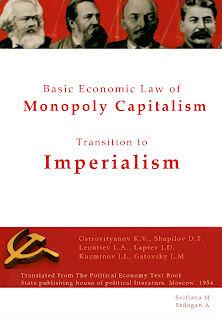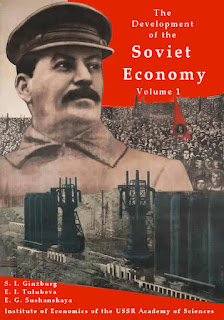VII. HOW FASCISM CAME IN AUSTRIA
Palme Dutt
“There was deep ferment in the barracks of the people’s army. The people’s army felt that it was the bearer of the revolution, the vanguard of the proletariat.... The soldiers with arms in hand hoped for a victory of the proletariat.... “Dictatorship of the proletariat!” “All Power to the Soviets!” was all that could be beard in the streets.”
“No bourgeois government could have coped with such a task. It would have been disarmed by the distrust and contempt of the masses. It would have been overthrown in a week by a street uprising and disarmed by its own soldiers. Only the Social Democrats could have safely handled such an unprecedentedly difficult situation, because they enjoyed the confidence of the working masses.... Only the Social Democrats could have stopped peacefully the stormy demonstrations by negotiation and persuasion.Only the Social Democrats could have guided the people’s army and curbed the revolutionary adventures of the working masses.... The profound shake-up of the bourgeois social order was expressed in that a bourgeois government, a government without the participation in it of the Social Democrats, had simply become unthinkable.”
“In a modem highly-civilised society, where all classes take part in public life, no other form of class-rule is any longer durably possible save one which permits the subject classes freedom to influence “public opinion,” participation in the formation of the collective will of the State, and control over its working: a class-rule, therefore, whose basis rests on the social factors of influence of the ruling class, and not on the use of mechanical instruments of force” (p. 116).
“The fate of the wonderful municipal houses of Vienna is a symbol. The constructive work of the Socialists created them; the guns of Fascism have reduced them to smoking ruins.”
“Dr. Deutsch, the commander of the Republican Defence Corps, has reminded the world that at the time of the Vienna disorders of 1927, when an excited mob burned down the Palace of justice, not one military weapon of the many thousands at their command wits issued to the Republican Defence Corps. There are photograph,; on record showing that Burgermeister Seitz and other Socialist leaders at the risk of their own lives went out into the midst of the angry mob to calm them. Ninety-five men and women were killed by police bullets on that occasion, and only five police-figures which speak for themselves. Why did not these bloodthirsty revolutionaries seize their opportunity, when the Heimwehr were in their infancy, the army largely socialist, democracy unchallenged in Europe, and the Clerical Party comparatively weak?... It is that the Austrian Social Democratic Party has established by its whole history the right to the description of democratic and pacific” ( New Statesman and Nation, February 24, 1934).
“Democracy has inflicted a crushing defeat on the Heimwehr and its promoters.... The Heimwehr movement, which until recently believed itself to be on the eve of the final victory, is in a state of rapid decline.... The purely political problems have ended with the complete victory of the working class.” (Report of the Austrian Social Democratic Party to the Vienna Congress of the Second International, July 1931.)
“The Social Democratic Party did not reply with forcible resistance. On the contrary, right down to the last it made every effort to enter into negotiations with the Dollfuss Government.... This peaceful and waiting attitude of the Social Democratic Party only encouraged the Dollfuss-Fey Government to adopt more and more antagonistic measures against the working class and against the Social Democratic Party.”(“International Information,” bulletin of the Second International, February 18, 1934.)
“What was to be done now? The Social Democrats knew very well that it would be very difficult for a general strike to succeed in a period of unprecedentedly severe and prolonged unemployment. The Social Democrats made every imaginable effort to avert a violent issue. Over a period of eleven months we tried again and again to establish negotiations with Dollfuss.... Again and again we offered to agree to extensive constitutional reforms and to thegranting of extraordinary powers to the Government for a period of two years, all that we asked in return being the most elementary legal freedom of action for the Party and the trade unions....We over-estimated the possibility of reaching a peaceful settlement.” (Bauer, “Tactical Lessons of the Austrian Catastrophe,” International Information, March 8, 1934.)
“If we had launched our attack at an earlier stage, our action would have been on a greater and more universal scale, and the prospects of victory would have been brighter.Consequently, if we did make a mistake, our mistake consisted in unduly prolonging our efforts for a peaceful settlement and in unduly postponing the decisive struggle. There is no need for us to feel ashamed of this mistake! We made it because we wanted to spare the country and the working class the disaster of a bloody civil war.”
“The masses of the workers were awaiting the signal for battle. The railwaymen were not yet so crushed as they were eleven months later. The Government’s military organisation was far weaker than in February 1934. At that time we might have won. But we shrank dismayed from the battle. We still believed that we should be able to reach a peaceful settlement by negotiation. Dollfuss had promised to negotiate with us at an early date – by the end of March or the beginning of April – concerning a reform of the Constitution and of the Parliamentary agenda, and we were still fools enough to trust a promise of Dollfuss. We postponed the fight, because we wanted to spare the country the disaster of a bloody civilwar. The civil war, nevertheless, broke out eleven months later, but under conditions that were considerably less favourable to ourselves. It was a mistake, the most fatal of all our mistakes.”
“The embitterment of the working class regarding the Government’s policy continually increased.... The embitterment of the workers was directed more and more against the policy of the Party Executive, which was to wait and be prepared for agreement. Growing numbers of members of the Party demanded with increasing force that the offensive should be taken....For months past it has been increasingly difficult for the Party Executive to make the embittered workers understand the necessity for this waiting policy.”
“During the last week there were growing signs that the Government was preparing for the decisive blow…. These events caused the workers to take the following view:… “In this situation we can no longer allow ourselves to be disorganised by the arrests of Schutzbund leaders and by the confiscation of stores of arms, unless we are to confront a Fascist coup d’état defenceless and unable to fight within a very few days.”
In spite of this the Party Executive still adhered to its line. It considered it to be necessary for the workers to wait for the results of the negotiations between the Federal Chancellor and the Provincial Governments with regard to the demands of the Heimwehr, and that they should not take the offensive until one of the four cases should arise in which a defensive struggle for the defence of the Constitutional order would according to the decision of the Party be unavoidable. On Sunday (February, 10) officers of the Party Executive gave instructions on these lines to comrades who reported on the agitation among the workers,and urgently warned them against taking the initiative on their own account. But the agitation among the masses had reached such a pitch that these warnings fromthe Party Executive were not heeded.”
Thus the honour of the Austrian rising rests wholly with the workers, and not with the Social Democratic leadership. The role of the leadership was only to disorganise the struggle at every stage.
The struggle of the Austrian workers was not defeated by the superior forces of the enemy. It was defeated by the disorganising role of the Social Democratic leadership. This was clear in all the events leading up to the struggle. It was no less clear in the actual struggle.
Instead of being able to enter the struggle with the full strength of their organised force on a strategic plan, with the maximum mobilisation of the masses, and with a clear political lead the workers had to enter the struggle by local initiative from below, sporadically, partially, against hampering opposition from above, losing the possibility of the initiative, losing the possibility of the offensive, and thus yielding all the strategic advantage to the enemy.
“Many people believe that the Socialists would have won control in Austria if all sections of the working class had supported them.
In many places the workers were split among themselves and reached decisions too late.
Several leading trade unions refused to give instructions to strike to the factories they controlled.” (Daily Herald, February 16, 1934.)
The general strike was first vetoed, and, even when the workers compelled the call to be given, after the struggle had already begun, the call never reached the majority of the workers, and a great part of the trade union machine made no attempt to make it effective. The railwaymen continued to carry the Government troops, thus giving to them full liberty of movement and concentration. The struggle of the Defence Corps was fatally cut off from the masses, instead of being developed as a mass struggle, and even the majority of the Defence Corps were never mobilised or brought into the struggle. There was no political mass lead to positive aims of the struggle, but only halting apologetic explanations of “defence of the Constitution.” Because the initiative was lost through disorganisation, through the absence of any central leadership beginning and organising the struggle, the possibility of the offensive and of seizing the main public buildings of the centre at the outset was lost; the Government was able to complete its cordon of the inner city and artillery preparations before the struggle began; the fight was turned from the first into a defensive fight.
Yet even under all these heaviest disadvantages a position was achieved by the second day in which the Government forces weakened and the issue was in doubt:
“On the Government side the troops are reported to be exhausted and disheartened. According to the Vienna correspondent of the Berliner Tageblatt, sections of the Fifth Infantry Regiment have deserted to the Socialists. Deprived of a bully’s “walkover,” the Fascist Heimwehr showed they had little stomach for a real fight. Many have flung down their arms, and the rest may be withdrawn to barracks” (Daily Herald, February 14, 1934).
Bauer himself is compelled to admit that, despite all the Government’s artillery, the victory could have been won by the working class, had the struggle been developed as a mass struggle:
“After four days’ fighting the workers of Vienna were defeated. Was this, result inevitable? Could they conceivably have won? After the experience of those four days we can say, that if the railways had stopped running, if the general strike had spread throughout the country, if the Schutzbund had carried with it the great mass of the workers throughoutthe country, the Government could hardly have succeeded in suppressing the rising.”(Otto Bauer: Austrian Democracy Under Fire, p. 34.)




























.jpg)



















